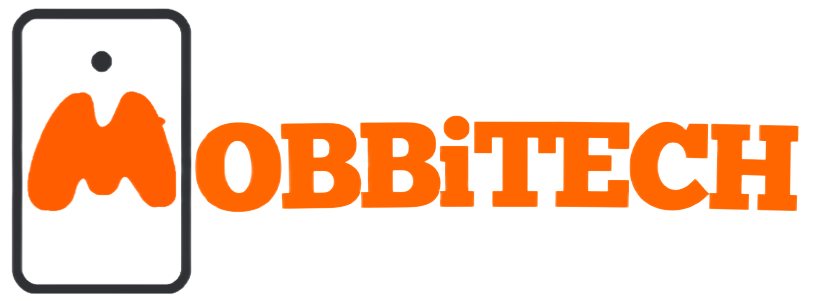Table of Contents
Cloud computing has allowed organisations to scale infrastructure, increase flexibility, and drive innovation, making it an integral part of modern business operations. If you’re looking for a cloud provider that can meet the varied needs of your business, look as far as Microsoft Azure, Amazon Web Services (AWS), or Google Cloud Platform (GCP). Companies may need help choosing the best cloud provider due to the wide variety of platforms available, each with its own features, pricing models, and performance capabilities.
In this blog, we’ll compare Microsoft Azure vs Amazon Web Services (AWS) vs Google Cloud, analysing the advantages and disadvantages of each along the way. This comparison will assist you in making an educated decision and choosing the cloud platform that is most compatible with your company goals, whether you are considering getting your AWS Certification or investigating cloud options for your organisation.
Market Share and Adoption
AWS
With millions of customers all over the globe and the most significant market share, AWS is the cloud computing industry leader. Cloud computing, storage, networking, databases, machine learning, and more are all part of AWS’s extensive suite of services.
Microsoft Azure
Regarding cloud computing, Microsoft Azure is second only to Amazon Web Services (AWS) regarding market share. Azure caters primarily to large businesses by offering various services with other Microsoft offerings, like Windows Server and Office 365.
Google Cloud Platform (GCP)
GCP is becoming more popular in the cloud market, especially among data scientists and developers. Google Cloud provides cutting-edge AI, ML, and data analytics services but doesn’t have the market share of Amazon Web Services or Microsoft Azure.
Services and Offerings
AWS
AWS offers the most extensive portfolio of cloud services, with over 200 fully featured services across categories such as computing, storage, databases, networking, analytics, AI/ML, IoT, and more. Services such as Amazon Elastic Compute Cloud (EC2), Simple Storage Service (S3), Relational Database Service (RDS), and Amazon Redshift are some of AWS’s most prominent offerings.
Microsoft Azure
Software as a service (SaaS), infrastructure as a service (IaaS), and platform as a service (PaaS) are all part of Microsoft Azure’s extensive suite of cloud services and solutions. Virtual Machines, Blob Storage, SQL Database, and Machine Learning are all part of Azure’s offerings.
Google Cloud Platform (GCP)
Data analytics, machine learning, and containerisation are some of the many cloud services that Google Cloud Platform (GCP) offers. Some of Google’s most important services are Cloud Storage, Google BigQuery, Google Compute Engine, and Google Kubernetes Engine.
Pricing and Cost Management
AWS
With AWS’s pay-as-you-go pricing model, clients only pay for the resources they use, which helps with cost management. To help optimise costs according to usage patterns and workload requirements, AWS offers various pricing options, including on-demand, reserved instances, and spot instances.
Microsoft Azure
Like Amazon Web Services (AWS), Microsoft Azure offers a pay-as-you-go pricing model and multiple service-specific pricing tiers. Azure provides cost management tools like Azure Advisor and Azure Cost Management to assist customers in keeping tabs on and making the most of their cloud expenditures.
Google Cloud Platform (GCP)
With its flexible pricing options and pay-as-you-go model, GCP offers competitive pricing compared to AWS and Azure. Customers can keep tabs on and manage their cloud spending with the help of Google Cloud’s cost management tools, which include Google Cloud Billing and Google Cloud Cost Management.
Performance and Reliability
AWS
Amazon Web Services (AWS): AWS’s worldwide network of data centres and robust infrastructure allow it to provide reliability, scalability, and high availability. Low latency and rapid data transfer speeds are guaranteed for customers worldwide by AWS’s extensive network infrastructure.
Microsoft Azure
With its extensive network of data centres worldwide, Microsoft Azure ensures that mission-critical workloads are always available and reliable. Azure’s integration with Microsoft’s enterprise products and services, including Active Directory and Windows Server, achieves enhanced security and compliance for enterprise customers.
Google Cloud Platform (GCP)
Renowned for its innovative technologies and high-performance infrastructure, Google Cloud Platform (GCP) includes Google’s global network backbone and custom-designed hardware, among other things. Regarding data-intensive workloads, GCP’s network architecture guarantees low latency and high throughput.
Ecosystem and Integration
AWS
The extensive network of AWS partners, third-party integrations, and developer tools streamlines the application development, deployment, and management processes for AWS customers. Furthermore, AWS provides substantial support for open-source technologies and integrates effortlessly with well-known development frameworks like Kubernetes and Docker.
Microsoft Azure
Azure works with Microsoft’s other offerings, such as Windows Server, Office 365, and Active Directory. Native support for Microsoft development tools and frameworks, including Visual Studio and .NET, is also provided by Azure.
Google Cloud Platform (GCP)
Integrating other Google services and products with Google Cloud Platform (GCP) is a breeze. This includes Google Workspace, Google Analytics, and Google Cloud Identity, among others. Open-source technologies and developer tools, like TensorFlow and the Google Cloud SDK, are also well-supported by GCP.
Conclusion
Last, your business needs, technical knowledge, budget, and workload characteristics should be considered when deciding between Google Cloud, Microsoft Azure, and Amazon Web Services (AWS). While Amazon Web Services (AWS) continues to rule the cloud computing industry, competitors like Google Cloud and Azure are making waves with cutting-edge features and solid business packages. It is essential to assess each cloud platform’s advantages, disadvantages, and appropriateness for your unique use cases, whether you are considering getting an AWS Certification or investigating cloud options for your company. Select the ideal cloud platform to fulfil your requirements and expedite your digital transformation by comparing Microsoft Azure, Amazon Web Services (AWS), and Google Cloud according to market share, services, price, performance, and ecosystem.
Also Read: Cloud Computing, Cloud Applications And How Does It Work For Business

